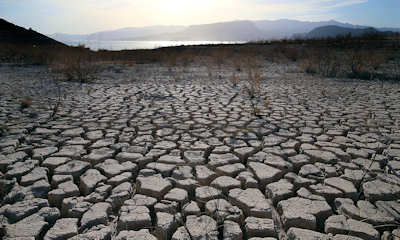September 1, 2016

Many of us in the Western water arena have been scratching our heads in recent months, as water matters – let alone ranching and farming issues – have been virtually ignored by the candidates seeking to move into 1600 Pennsylvania Avenue. In fact, three months ago, I was interviewed by Politico magazine, which performed an in-depth look at how Washington has been turning its back on America's water systems. I told Politico at the time that it would be nice to have water even mentioned by potential presidential candidates.

WATER FOCUS: The election has candidates covering many topics, yet Western water issues are important too. (Photo: Justin Sullivan/Getty Images)
Of course, those concerns were turned on their head when Republican presidential hopeful Donald Trump days after the Politico article ran told supporters in Fresno, California that state officials were simply denying water to Central Valley farmers to prioritize the Delta smelt. Trump held two rallies in California ahead of the June 7th primary, and fired up the crowd in Fresno when he vowed to solve their water problem.
Most in the media blasted Trump for his drought comments, while also losing sight themselves of the reality of the matter. Seventy-two percent of the water that flowed into the Sacramento/San Joaquin River Delta in the last two years went out to the ocean. This year, a little over one million acre-feet of water that was available to be pumped and put into storage instead went to the ocean to meet the perceived needs of salmon and Delta smelt protected by the Endangered Species Act. The 5% water supply farmers on the Westside of the San Joaquin River are getting this year isn't because of the drought. As the California Farm Water Coalition correctly noted, “It's because federal bureaucrats decided to hold on to it in case they want to use it later in the year for something else”.
Across the aisle
Meanwhile, Hillary Clinton, who steered clear of the water controversy in her visit to California, did release a strategy for “Improving water security”, which would increase federal investment in water conservation through a coordinated, multi-agency Western Water Partnership; unlock new resources for local water infrastructure; expand water reuse; and establish a new “Water Innovation Lab”.
Hopefully, the remaining presidential candidates recognize the value of irrigated agriculture, which is vital. Understanding the current and future role of irrigated agriculture in the West through aggressive action to repair aging infrastructure and create new water supply enhancement projects is imperative. Properly managing Western watersheds and encouraging federal agencies to work in partnership with the agricultural community to solve local water challenges will be equally crucial if we want to take care of landscapes and produce food.
These types of recommendations can help keep Western agriculture productive and profitable, which promotes sound communities, viable economies and healthy landscapes in the West. Good policies will drive the programs and activities that lead to great public investments. These will pay for themselves over and over and demonstrate positive long-term impacts.
It is time to learn more from the candidates about how they intend to advance solutions that have proved so elusive to date.
Keppen is executive director for the Family Farm Alliance, a west-wide coalition of farmers, ranchers, irrigation districts and allied industries that advocates for reliable and affordable irrigation.
You May Also Like




